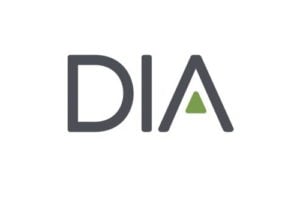Writing in the DIA Global Forum’s special November 2022 issue on the Digital Virtuous Loop Karin Van Baelen and Susan Sandler – both of Janssen – and AbbVie’s Álmath Spooner look at Europe’s progress towards true real-world evidence integration and its potential impact on decision making across the healthcare continuum.
Real-world evidence (RWE) policy is evolving around the world, with increasing recognition that RWE offers a value proposition for all stakeholders in the research, development, and healthcare ecosystem. In the European Union, the European Health Data Space (EHDS), if optimally implemented, has the potential to advance the concept of a learning healthcare system that enables not only sharing of data but also sharing of insights. This concept provides a vision for a future when improved, more connected use of data will enhance decisions on therapies for individual patients, with feedback loops from clinical practice to research and development, and then back again, with each helping the other to make better decisions faster.
Delivering on this vision will require that all the elements and partners in the ecosystem come together to unlock the potential of real-world health data. In order for EHDS’s proposal to be feasible it will require standards and interoperability framework, governance, and rules to access, share, and use the data , and the evolution of the regulatory framework so that there is greater clarity on use cases and a shared confidence in methodologies.
One EU regulatory initiative that has been working towards increasing the capacity to generate and use RWE is the Big Data Steering Group (BDSG) set up by the European Medicines Agency (EMA) and the Heads of Medicines Agencies (HMA) in 2019. It has been tasked with implementing the vision of the European Medicines Regulatory Network to increase the use of big data (including real-world data, RWD), thus improving the regulation of medicines. In July 2022, the Steering Group published its third workplan, which sets out key actions to be delivered between 2022-2025.
Across the world, we see links between RWE policy evolution and advancement of other policy goals as the potential for RWE to supplement randomised clinical trials and provide insights into broader populations and patient experiences grows more evident. While most progress has been made in rare diseases and oncology, there are multiple future opportunities to extend these experiences to other diseases. With increased availability of healthcare data and advancements in analytics, the potential to work towards closing some of these gaps is significant, supporting precision medicine, and ultimately improving patient health outcomes.
Aside from inclusion in regulatory submissions, RWE can also facilitate medicines’ development by, for example, helping to understand the natural course of diseases, identifying existing standards of care for diseases, refining clinical trial inclusion and exclusion criteria, and providing data to support orphan designation. Artificial intelligence (AI) and machine learning (ML) will continue to bring forward additional insights to complement and inform development strategies within companies as well as regulatory discussions.
RWE can also play a key role in facilitating patient access to medicines. For example, RWE can support health technology assessments (such as for managed entry agreements or other novel payment models) as well as payer decisions. In this way, RWE can feed into a learning healthcare system that enables healthcare decisions to be refined on an ongoing and iterative manner, as more relevant data become available.



